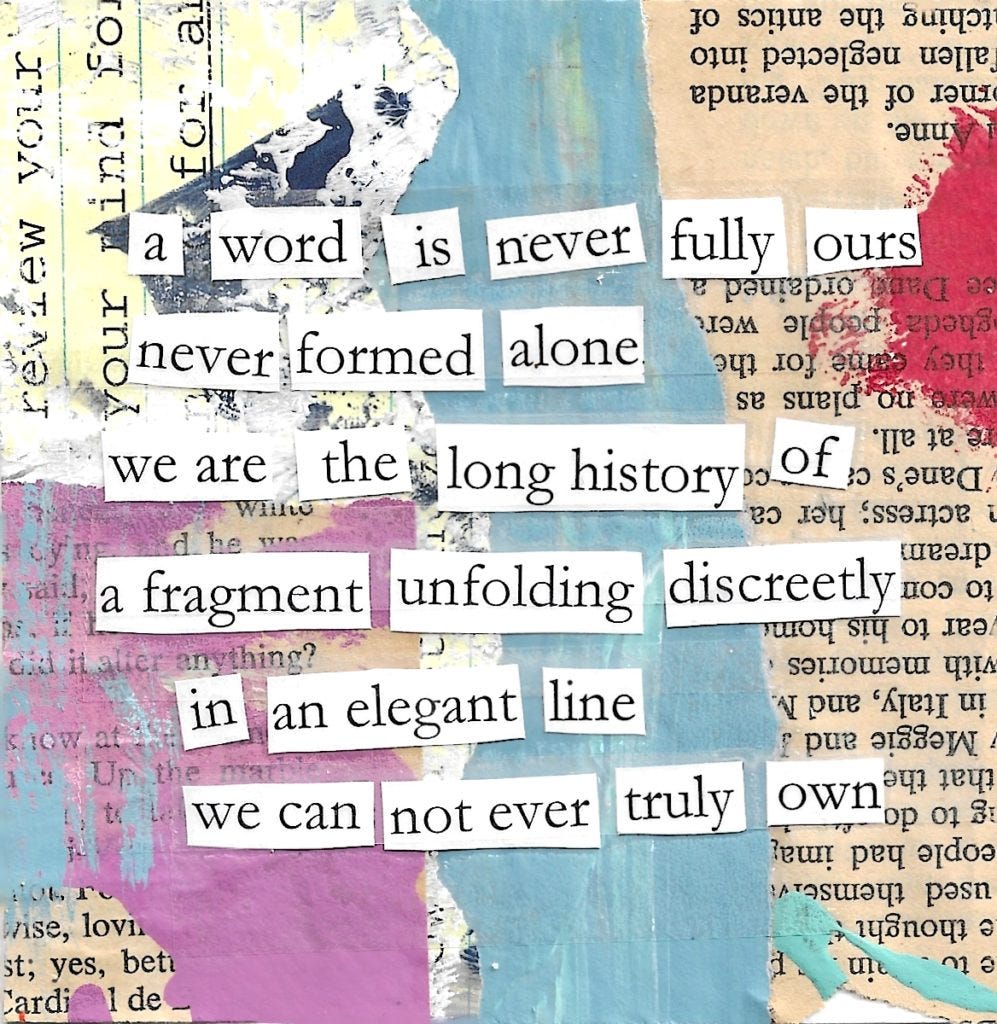a fragment unfolding...
Elena Ferrante says that "We have to accept the fact that no word is truly ours." She says that "We have to give up the idea that writing miraculously releases a voice of our own, a tonality of our own". We never achieve excellence out of nowhere. Never all at once, and never on our own. If we think that it can come out of the blue, if we think it can arrive fully formed in an instant, or if we think that we can achieve it alone, all we have really done is failed to think it through, failed to pay attention, failed to retrace our steps, failed to cite our sources.
"Everything, in writing has a long history behind it", Ferrante says, and we must get "comfortable with everything that has already been written", we must "reckon with other writing." Excellence is iterative and incremental. It is the slow and unfolding outcome that follows from the daily act of making choices and adaptive corrections. And no matter how solitary the process seems to be, our ultimate achievement of excellence is predicated upon a plethora of engagements, interactions, and exchanges with people and ideas that have each discreetly and imperceptibly pushed us to be better than we were before. "Writing," explains Ferrante, is "entering an immense cemetery where every tomb is waiting to be profaned", it is "seizing everything that has already been written and gradually learning to spend that enormous fortune".
We commune with what has come before, with all those that are both present and past, all the people on the other side. Their words like crumbs marking the path. And we realize that we are but one in a long line of "I's" who writes in effort to make a more excellent version of the last; "a fragment among fragments", Ferrante says. A piece of an elegant theory that helps us get to a better one.


